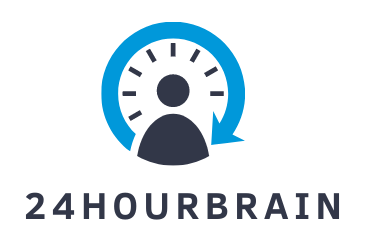What Exactly is Classical Literature?
Literature’s canon of classics is constantly changing and expanding. However, “the classics” do not exist because the term “classics” is divided into several subcategories:
According to Wikipedia, the classics are works of Greek and Roman literature that still have meaning today.
As you can see, this list provides an idea of what a classic is, but it is not a definition. Classics now include Mary Shelly’s Frankenstein, Herman Melville’s Moby Dick, Alexandre Dumas’ The Count of Monte Cristo, and Bram Stoker’s Dracula.
Of course, both Goethe’s older works and Franz Kafka’s more recent ones are now considered literary classics.
My Perspective on Classical Literature
I spent most of my childhood and adolescence reading science fiction novels. I came across Jules Verne’s books one day. It struck me that Jules Verne had already described much of the technology and visions that existed at the time in his books.
I also started reading other classics and realized that I was gaining access to the world and perspectives that had previously been closed to me. As a result, I realized that current problems have their origins in the past.

The Writer’s Life
Along with reading the classics, I began researching the lives of the authors of these works. No book can be fully understood without first learning about the authors and their times.
Reading biographies of the writers, for example, helps to understand the motivation behind the books. I learned more about the book’s topic and came up with new ideas, things to think about, and conclusions as a result.
The Distinction from Wikipedia
Why should people read the classics? Surely, Wikipedia contains all of the information I require! “Wikipedia only contains classic literature information.”However, Wikipedia lacks dialogues and feelings that can be conveyed through text. And that is precisely the point of the classics!
Reading classical literature taught me that our world used to be, and still is, much more complex! My understanding of the world’s connections has grown.
What Classical Literature Did For Me
Classical literature can make you smarter, help you see relationships that aren’t as simple as they seem, give you new ideas, and raise your social status.
Reading classical literature has significantly increased my intellectual capacity. One gains insights into the past’s life, culture, feelings, and actions.
My judgment has improved as a result. After reading these books, you are more careful about forming your own opinions and think more carefully about the situations.
My own vocabulary has grown. My ability to express myself has greatly improved in conversations, presentations, and writing texts.
Others describe me as an intellectual, which helps my social standing. My educational level was also rated higher by colleagues and superiors at my job.
Reading the classics sparked my interest in both history and classical music. These experiences complemented the knowledge I gained from reading the books.
One example is that my vacationing habits have shifted. I traveled to Tuscany and visited Florence after reading Dante’s Divine Comedy. I visited the Medici museums and buildings while there. I then read a non-fiction book about the Medici and watched documentaries about the time period with zeal.
As a result, I started learning Italian. It is clear here what a life-changing impact classical literature can have on a person’s life. This is still an ongoing process.

Where Should One Start?
I don’t recommend beginning with difficult-to-read classics like Homer or Shakespeare. Starting with more exciting and simpler texts makes more sense.
Many of the books I recommend have been adapted into films. After you’ve read the books, it’s fun to watch the movies.
To begin, read these ten world literature classics:
- Alexandre Dumas’s The Count of Monte Cristo
- Franz Kafka’s The Metamorphosis
- Herman Melville’s Moby Dick
- Daniel Defoe’s Robinson Crusoe
- 20,000 Leagues Under the Sea by Jules Verne
- War and Peace by Leo Tolstoy
- Mark Twain’s The Adventures of Huckleberry Finn
- Siddartha, Joseph Conrad’s Heart of Darkness Hermann Hesse
- Bram Stoker’s Dracula
These are simple recommendations to get you started. I tried to cover a wide range of genres, so if you enjoy science fiction, start with Jules Verne.

Conclusion
Classic literature contains timeless texts, and the insights gained through reading can be applied not only to today’s society, but also to your own life.
Reading 20 minutes of classical literature every day will bring you more benefits than spending 20 minutes on a social media platform. Furthermore, you are one of those people who continue to transport humanity’s cultural heritage.


